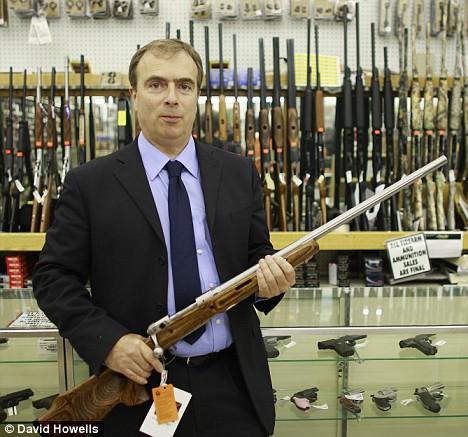An Interview with Peter Hitchens – Shouting into the Wind
“I didn’t arrange that,” Peter Hitchens blushes. A stranger has just told him of her appreciation for everything he stands for and, for once, he’s been caught off guard, disarmed by praise. The stone wall of rhetoric, dogmatic conviction and obduracy against which I’ve been fighting an attritional struggle for the past hour is felled in an instant. And I can’t help feeling relieved.
We’re in Starbucks showing our solidarity with their tax avoidance – well, Hitchens is. “I’m a very bad interviewer,” he opens, slipping into the rich baritone of the ‘Hitchens’ voice that so melodiously beguiles and bewitches, “partly because I’m usually more interested in myself than the other person.” And he has reason to be. After all, Peter Hitchens is a hell of a lot more interesting than most other people; I’ll give him that. Columnist and blogger for The Mail on Sunday, author of five books on drugs and God, crime and politics, reporter from more countries than you can count on two hands – it’s a CV that would dwarf most.
But, if you’ll believe him, no one’s taking him seriously. Never mind, though: the fact that they aren’t will hardly matter soon enough. Indeed, the world as we know it is preparing for its final curtain call. This is the end of civilisation according to Peter Hitchens.
Characteristically, Hitchens has been one of the more outspoken commentators on the recent Sandy Hook massacre that has reignited the debate on gun laws in the US. “People don’t think about anything most of the time,” he notes about the arguments against gun ownership in the wake of the Sandy Hook massacre, “It’s just intellectually moronic to close your mind to the possibility that something other than guns are at issue.” He’s thought, he’s decided, and I’m not about to change his mind: “I’m bored by this subject. If someone produced a gun in here I’d be as scared as the next man – probably more so because I’ve seen what happens when a bullet passes through a human body. It’s not nice, I’m not in favour of it.”
Hitchens rests his arm over the railing next to our table, as he attempts to deconstruct the myths of gun control. To him, the reasoning is unsound. Indeed, until 1920, he maintains, the UK’s very own gun laws “were so lax they made Texas look effeminate.” And what about the rarely reported knife massacres in China? Guns aren’t the only things capable of causing havoc, he argues. “This problem of increasingly frequent gun massacres is new,” Hitchens goes on, “It’s not something that’s been going on during the entire period that the United States has had relaxed gun laws. In fact, its gun laws have become increasingly restrictive over the past 30 or 40 years.” His tone is such that it almost caresses me into submission. Almost. But I’m not convinced. Fifteen of the 25 biggest mass shootings worldwide in the last half-century have taken place in the US, a country with double the number of guns per person compared with somewhere like Yemen. Hardly coincidental, I might suggest.
“It’s theoretically arguable that the existence of law-abiding gun owners in places where people start shooting provides some protection,” Hitchens digresses as I inwardly cringe, noticing the tell-tale signs of the strand of thought with which he’s aligning himself – the NRA honchos and their ‘more guns, fewer shootings’ claptrap. For someone who prides himself on logic being his weapon of choice, this doesn’t seem awfully logical to me. “Take the Anders Breivik incident,” he explains, “Had there been anybody on that island in possession of a legally owned gun, a law-abiding sane person, they could have dropped him from 300 paces, and that would have been the end of that. Good thing, no?” Well, yes… provided that you haven’t taken into account how many more Anders Breiviks might crop up if guns were readily available.
Yet still his claim is that the problem lies elsewhere: “It’s a case of the old saying,” he recalls, “‘When the wise man points at the moon, the fool looks at the finger.’” Focusing on guns is a lame distraction. In the world according to Hitchens, we’d bite the bullet and scrutinise “a scandal as big as thalidomide” much more closely. Most of these shootings, he’s convinced, have involved anti-depressants or illegal drugs (and sometimes both). However, “the reason we don’t look there is because it’s fashionable to be against guns and it’s fashionable to be in favour of anti-depressants and marijuana.” Hitchens takes a gulp of his coffee and shakes his head irately: “Fashion shouldn’t govern thought.” I couldn’t agree more – but contrariness is fashionable too, I think to myself.
“The anti-depressant scandal is so huge,” and he’s cross with the failure of his trade to report it. Hitchens carefully explains to me that it’s a “known fact” that the pills induce “suicidality, a tendency to feel suicidal,” but that nobody seems to care: “If people were constantly dying of a physical disease after having taken a pill that was supposed to cure them, the suspicion would be thrown on the efficacy of that pill.” But self-interest shuts the door to examination – on the part of “an awful lot of people in the media” who are taking these drugs, the “huge number of doctors” who prescribe them “out of laziness and a desire to get rid of patients,” and the pharmaceutical companies whose profits keep on soaring.
Hitchens fidgets in his chair slightly, before candidly admitting: “My engagement with the argument about drugs is purely to point out that everybody is talking balls. I don’t have the slightest illusion that anything I say is going to make a difference.” It’s the first sign of Hitchens’ distaste for the modern world – and its distaste for him. “It’s coming, it will come,” he prophesies, “If you’ve read Brave New World, soma [the hallucinogenic consumed ubiquitously in Huxley’s novel] is on its way.” Illegal drugs, according to Hitchens, have been systematically decriminalised in recent decades by the UK. He rubbishes my suggestion that Portugal has seen notable successes since decriminalising possession of all drugs in 2001, regarding the Cato Institute’s conclusions as self-serving: “The evidence is that they had an agenda. Besides, Portugal hasn’t decriminalised to anything like the extent that Britain has,” he explains, swooping up his coffee mug and leaning back once more.
Regulation of the drug market is a cowardly kowtow to the “stupid people that take them,” Hitchens believes. But what about the tens of thousands of preventable deaths in Mexico, or the Taliban-swelling destruction of Afghanistan’s poppy fields (the only crop that yields its farmers any sort of livelihood)? “Well, they’re caused by the selfish cretins who encourage the trade. They’re on their conscience.” He disputes the idea that decriminalisation would, in one fell swoop, eradicate (or at the very least, significantly reduce) the nefarious effects of just these two examples. The way I see it, prohibition has been ineffective – it’s changed nothing but the girth of the criminal underbelly. Peter Hitchens has no time for such arguments, though – indeed, his writings deny the very existence of a policy of ‘prohibition’ in the UK – and he’s not afraid to show his impatience with them: “Oh it’s pathetic, sub-intellectual drivel! Any thinking person would easily see through it if they were given half a chance, but it’s fed to them as truth,” he complains.
Lazy thinking is a bugbear of Hitchens’, not least when it comes to God. Which is why I’m a touch surprised that he appears jaded by the conversation when I bring it up: “I’m reduced to repeating things I’ve said over and over again,” he sighs, “It’s a matter of saying that either this is a created universe, and it is therefore the product of a mind in which we live and move and have a purpose that is discoverable, or it’s a meaningless chaos in which nothing we do has any significance.” Life without faith, for him, is necessarily devoid of meaning and happiness: “You live, you die, it’s over. There’s no justice, there’s no hope, those who are dead are gone and we have no souls. Why would you want that?” The trouble is that Hitchens’ argument smacks of teleology, even though it’s dressed up as rationalism – he wants there to be a meaning, a narrative he can follow with his finger down a page, a universal and unalterable understanding that is discoverable. Therefore God exists. Persuaded?
Above all, what religion gives Peter Hitchens is justice and morality. “I don’t care whether you need him or not,” he expounds in pugnacious style, “Human justice, as we know, is a completely fallible thing. Yet we all desire justice – I bet you do. If it isn’t happening in the temporal sphere, there’s only one sphere in which it can take place: the eternal.” Hitchens believes that a world without religion would substitute morals for ethics. And we’d be poorer for it: “Ethical codes change all the time. What’s more, they usually change to suit powerful people who need them to. But God does not change; justice does not alter.” My mind wanders momentarily, and I wonder whether he would agree that Henry VIII’s divorce proceedings – on which Hitchens’ Anglicanism was founded – constituted precisely the kind of change to the Church’s morality (at the behest of a very powerful person indeed) that he’s disparaging in the secular world.
There’s no doubt in his mind, though, that the Church of England is in decline. According to census figures, the percentage of UK citizens classifying themselves as Christian nosedived by 12.4 per cent between 2001 and 2011. “Christianity has more or less talked itself out of existence,” Hitchens acknowledges, “It lacks confidence and in many cases is espoused and headed by people who don’t really believe in it anyway.” It’s a depressing indictment of his own dearly held faith. “This will be an Islamic country in 60 or 70 years’ time, I think,” he continues, resting his hands lightly on the table, “When the fundamental religions of modern life – namely, uninterrupted economic growth and an endlessly expanding welfare state – have proved to be false, which they are doing as we speak, there will be a religious revival in the Western countries and Islam is very well placed to take advantage of it.”
A distinct sense of resignation penetrates nearly everything Hitchens says. He appears to see himself as a modern-day Cassandra, shouting truth into the wind whilst everybody else’s back is turned. There’s a certain earnestness in his voice when he laments that he has “absolutely no influence over the politics of this country. Maybe you do,” he offers. “The existing political system is incredibly intolerant of dissent. And it keeps me out,” he notes as though he’s living in 1984, but still he keeps fighting his corner, “I’m treated as a sort of licensed lunatic. Nobody reads my books; nobody listens to anything I say. All I can say is that I’ve tried.”
And just when I think we’ve reached the nadir of this conversation, he hits back with a sucker punch: “The jig is up, the country’s finished, Western civilisation’s over. It’ll be the Chinese writing the history of this place.” His advice? Emigrate: “If I were you, I’d leave tomorrow. But I’m too old, I couldn’t make a living abroad now. I’m stuck.” He tells me how he’d board the first plane to Canada, because “it’s a sensible, well-governed place and its people have a good sense of humour.” But that does nothing to take away the sour taste of his doom and gloom end of days story. “We’re watching the end of an ancient and once rather wonderful civilisation,” he meditates wistfully, “You’re watching the end of it. It’s how these things go – neither with a bang nor with a whimper, but with the country sinking giggling into the sea.”
At length, we get up to leave. Maybe it was something in the coffee, but I felt sure I’d walked into Starbucks feeling about five feet taller than I did now. We shake hands, and I watch as he flings a scarf over his shoulder and strolls back to another day at the office, another day in the world of Peter Hitchens. It’s all well and good, but the trouble is that I’m not quite sure the world that Hitchens thinks he lives in really exists. At least, I hope it doesn’t.
Film Review: The Heiress
Oh, the weather outside is frightful but the fire is so delightful, and since we’ve no place to go, we may as well watch a good ol’ movie. And so it was that, from a storage box rediscovered during an impromptu search for something entirely unconnected, I unearthed this DVD of a film I’d not seen before.
The Heiress is a 1949 drama based on the 1880 Henry James novel Washington Square. It was directed by William Wyler and stars Olivia de Havilland as Catherine Sloper, Ralph Richardson as Dr. Sloper and Montgomery Clift as Morris Townsend.
Catherine Sloper is the daughter and only surviving child of the highly respected surgeon Dr. Austin Sloper and they live in opulent splendour at 16 Washington Square, New York City. Catherine is a rather plain and terribly shy young woman who, unlike her deceased mother (Dr. Sloper being recently widowed) is completely lacking in social charm and graces, a fact that her father is all to often reminding her of. All the same, despite her awkwardness at the various parties she and her father attend, Catherine thinks the world of him.
Then one day, she meets the very charming and handsome Morris Townsend and is immediately besotted with him and his efforts to woo her. She falls in love with him and they announce their engagement. Her father believes Morris to be nothing more than a fortune hunter and threatens to disinherit her if she marries him and even takes her away to Paris for a few months in the hope that her naive romantic feelings for Morris will cool but on their return, the young lovers plan to elope.
Just as Morris is about to head off to pack and procure a carriage for their flight, Catherine tells him of her father’s intention to cut off her inheritance. And so that night, all packed and ready to head out with the man she loves, she waits…and waits…and waits. Cue the sound of a heart breaking.
Shortly after, her father dies and Catherine inherits his entire estate but a life of spinsterhood seems likely to be hers. But several years later Morris returns from California and again professes his love for her with claims that he left her behind previously because he couldn’t bring himself to be responsible for depriving her of her inheritance. Catherine pretends to forgive him and they resurrect their old plans of elopement for later that night. Morris leaves to pack but when he returns with a carriage Catherine exacts her revenge. She calmly has the door bolted leaving Morris outside shouting her name and banging his fists against the door as she silently ascends the stairs to her bedroom.
One look at the credits for this film and the amount of talent involved is obvious. From the writers Ruth and Augustus Geotz who based the screenplay upon their own very successful stage play of the novel to William Wyler and his exquisite direction (let’s not forget this is the man who gave us among others Ben-Hur, The Big Country and Roman Holiday) to the wonderful performances from Richardson and de Havilland. Ralph Richardson had already played the role of Dr Sloper in London’s West End and the fact that he inhabits the role as comfortably as one might their own slippers makes this quite evident. Clift’s portrayal of the young man hoping to secure an easy ride for himself is fine but he’s perhaps a little too relaxed in his deportment and doesn’t quite convince me as do his co-stars. Olivier de Havilland on the other hand, gives the performance of her life. She starts out as wonderfully mousy and self-conscious and you almost cringe at her nervous social exchanges with the opposite sex but then, once love gathers her up in its arms and sweeps her off her feet, she’s suddenly filled with light and almost becomes someone else. In act three she changes again with the hardening of her heart as she realises that both male figures in her life (father and lover) have lied to her and let her down. Truly wonderful acting. No wonder she went home with the Academy Award and the Golden Globe the following year. It’s worth watching just for her. Miriam Hopkins who plays Lavinia Penniman, a widowed aunt who lives with the Slopers as a kind of chaperone and guardian to Catherine is worth a mention too. She adds a layer of humour to the film and often offsets Richardson’s austerity with her rather childish romantic prattling.
Overall, it’s a compelling and powerful drama that will grip you, as it did me, from start to finish.
Holy Taxation Batman!
My daily commute to work consists of driving around six miles a day and also consists of driving into pot holes that even a Challenger tank would struggle to get through. And year after year the roads get a cheap repair and subsequently end up as pot holes again within a few short months. And this in turn has me a) on the verge of a cataclysmic mental break down as my spine is shattered by what appears to be a meteor crater , and b) makes me wonder what the council’s authorities for our area are doing with our cash.
And so, upon arriving at work today on ungritted roads I made a few quick calculations as to how much of my monies have been taken from me.
So, here we go.
Okay, my yearly Income Tax payments work out to a staggering £3423. I’ve earned a pretty similar wage for the last ten years, which tells me that over the last ten years I’ve paid approximately £34,236 in Income Tax. It also tells me that after ten years of the same wage that I’m probably due a pay rise.
Then I looked at my National Insurance contributions. In a one-year period I paid £2073. Over ten years this comes in at a princely sum of £20,730.
So after spitting some tea over my desk as my calculator returned these numbers I then looked at my Council Tax bill.
My council tax for the last 10 years has been over £100 a month, but I rounded off at £140, the actual number these days is £159 but with fluctuations over the years I’ve rounded off to a more suitable number to accommodate the rises. My calculator returned a number of £14000 for ten years. Tea was then sprayed out of my nose and a meek cry squeaked from my throat.
Now, basing the above figure of £14,000, I then looked at the number of houses down my road, forty-four, and as all the houses down my road are the same, minus the occupants, the ten yearly Council Tax payments return at, and this made me pretty much launch my cup across the room, at £616,000. Remember, this is forty-four homes over ten years and I’ve been pretty generous in rounding off to the lower denominator.
Where I live, Wikipedia has the 2001 census as showing 14,732 residential homes. I appreciate that perhaps 60% of these homes either pay a lot less in Council Tax or get some form of support in paying it, yet still, if for the sake of being generous subtract 60% off we are left with 8,839 residential homes; now let’s be even more generous to the Council Tax that the remaining households pay and let’s say that they all pay £90 a month, quite a large deficit but I’m being generous, but now we are left with a monthly tax to the Council of £795,510.
Then over a ten month period of tax, as they so kindly allow us two months free of payments, we reach the figure of £7,955,100.
That’s the year done.
Okay, so 10 years?
Add another zero to that figure my friend. £79,551,000
And this is for a small town where the Christmas tree that the Council put in our town was dubbed by tabloids nationwide as “The Worst Xmas Tree In Britain” and now small businesses are rallying other businesses to put some of their earnings into a kitty so they can provide the next Christmas tree!
So where does our Council Tax go? Well, a breakdown of the taxation can be found here: http://www.canterbury.gov.uk/main.cfm?objectid=1416
Note that my tax is a touch higher per annum than the example shown on the Canterbury Council website, but do note that section “7” shows that the annual charge on this example is £1307.39 Then scroll your eyes up to section “6” and look at the breakdown of this tax.
And now look out of your window and wonder how on a national scale of taxation that this country can be in recession.
And remember I’ve only used Council Tax as a larger example – to show how this cartel aggressively take your hard earned money yet collects my landfill bin waste every fortnight and only provide enough recycling sacks per year to allow for 4 sacks of recycling waste a month.
I appreciate that the Council don’t just collect our bins, but I’m looking at the big picture. The one where surely the expenditure of Kent City Council cannot be above the cost of the tax paid across our little South Eastern county?
I’m basing all the above figures on a town that probably wouldn’t even be missed if it fell into the sea, I’m not including the larger cities, towns and villages in the area, I’m basing the above on a town with an estimated population of 35,188.
So with this in mind after having my skull smashed into the roof of my car repeatedly I started wondering about car fuel tax.
See the link below of how this is made up. http://www.petrolprices.com/the-price-of-fuel.html
This is ludicrous, how can the tax be over 60%?
Or how the cost of fueling your home so you don’t have to start pulling down your fences and torching them in a metal bin in your front room to keep warm.
Or the VAT on every item you purchase at a 20%.
Car tax. This is a big “Wow” for me, because again, with Council Tax payments and Car Tax payments I still can’t travel from A to B without my car breaking up like the Challenger Spaceship.
Cigarettes and alcohol – you can’t even kill yourself for cheap in this country.
And then you start getting really pissy and start looking at Congestion charges, Travel costs. TV licensing, the cost to use a public toilet, and I’m not talking about the fear of assault or STDs caught off the taps, airport costs, the cost of buying a house and so on.
The cost of living in the UK is now at a point where your wages are gone before you’ve even seen them. Disposable income is something we will tell our grandchildren about as we sit around a fire burning the coffee table and family albums.
Jesus H Christ, where is this all going? Can we smile? Or will that be taxed soon as well? But then again, the fact we are being raped of all that we earn; it makes it difficult to keep turning that frown upside down. It’s a good thing this country doesn’t have the same gun laws as the USA because this country is bleeding hard working folk dry. And there are only so much of us that you can consume before you end up in a revolt.
Bridie Jackson & The Arbour Release Their Debut Single: A Review
<!–
google_ad_client = “ca-pub-6469969007044671”;
/* Anne Iredale */
google_ad_slot = “4931800784”;
google_ad_width = 728;
google_ad_height = 90;
//–>
Genre: Alt. Folk / Acoustic but wonderfully hard to define
Digital Download and CD
Double A Side:
Scarecrow
All You Love Is All You Are
Bridie Jackson & The Arbour are:
Bridie Jackson
Rachel Cross
Jenny Nendick
Carol Bowden
Following their first album release, titled Bitter Lullabies, in January 2012, the band toured extensively up and down the land. Now, their debut single for their new label Debt Records is to be released on February 11th, 2013. The artwork for the CD is like a page from a dark fairy tale, inviting us to delve further.
So, let’s look at Scarecrow first. Penned by Louis Barabbas (of Louis Barabbas and the Bedlam Six), it’s a Gothic tale with a surreal twist, told from the grave, with poetically elegant lyrics telling the tragic story of a bride-to-be dying the day before her wedding day .The juxtaposition of the dark lyrics and the purity inherent in Bridie’s voice is a beguiling contrast.
It drips sadness and longing and after a few plays, it got under my skin, whereas All You Love Is All You canada pharmacy Are is instant bliss. Bridie’s voice manages to blend joy and wistfulness into something wholly new . . . well, I simply don’t have a word for it.
This second track is a reworking of the version that appears on Bitter Lullabies and is written by Bridie, as is the entire Bitter Lullabies album (with the exception of lyrics for one song). It’s one of the standout tracks on the album, I think, so it’s good to see it on the single. This new version sounds, perhaps, even more assured. Intricate harmonies hang in the air and glide to a soft landing whilst cellist, Jenny Nendick and violinist, Rachel Cross pull every last drop of emotion from their instruments.
Roll on the release date. I’m sure this single release will expand their ever-growing fan base. They’ve earned it.
To stream or download the tracks, click here.
Nokia Lumia 920 Review
The first thought to enter your mind when opening the Lumia box is “Wow” – the design is so different to the other smartphones on the market, yet remains identifiably Nokia. With the fabula design, Nokia has managed to set itself apart with a combination of elegance and simplicity. In comparison, Samsung’s Ativ S (pictured below) looks clunky and out-dated. On the design front, Nokia seems peerless in striving for new designs – the iPhone has had 2, the original curved plastic back of the 2g, 3g and 3gs, and the current design of the 4, 4S and 5 (adding an extra inch of vertical height does not count as a design overhaul); HTC has churned out the same rounded-edge rectangles in grey for years, until borrowing a few design cues from the Lumia range for its 8X and 8S handsets; and Samsung is profiting nicely from copying the iPhone. The Lumia 920 always got a comment when it was taken out of my pocket, and it was always positive.


Your second thought comes after picking it up – the weight is nothing like so many reviews would have you believe. Some state the phone makes their arm ache, it’s uncomfortable to hold to their ear, it doesn’t fit in their pockets and it’s a struggle to hold. This is a device that weighs not even 200g – heavy compared to other smartphones, but by no means heavy in an objective definition. The fact is, complaints about weight are not doing much to improve the stereotype of wimpy geeks.
The 920 feels like a premium device – by no means will it make your arms ache (and if it does, a visit to the gym now and then would be recommended), but you will know you’re holding it. Compared to the iPhone 5’s feel of almost weightlessness, the 920’s feel is my preference. Holding the iPhone 5 makes me worry that holding it too tight will cause it to crumble, and the end result is most people will choose to cover it in a case that bumps the weight up to that of the 920 anyway. With the 920, the usual fear of damaging a trial device isn’t there – videos are abundant on YouTube of people going to extreme lengths to try to damage the device, with most failing to do so. No case or screen protector is necessary, and after more than a month of using it, there was not one scratch on either the screen or body.
One of the big features of the 920 is the ClearBack Display boosting readability levels when outdoors. This has been a smartphone plague since day one, and nothing caused me more frustration on my Samsung Galaxy II than trying to read an email outdoors – even minimal sunlight rendered readability to zero. By comparison, I never once had to shield the 920’s screen to make out what it was displaying; during my review period I visited Arizona, and even beneath its bright sunlight it was like looking at the screen indoors. It’s without doubt the best screen the market has to offer, and a feature Nokia should be shouting about.
Fortunately for the review, I was also able to test it in the English winter. Could it really work with gloves? Yes, it can. Reasonably thick leather ones too, with stunning accuracy. Finding a contact to call and even typing messages were no problem. When resistive screens were still reasonably popular, I was an advocate of them for the simple reason that they registered clicks from things besides flesh; the inability of capacitive screens to do so is a glaring problem and one that manufacturers have been content to ignore. Perhaps a perk of being based in Finland, a country that experiences winters California can’t even dream about, Nokia saw this weakness and overcame it – to such an extent that it even registers input from big ski mitts. If you’ve ever missed a call because you couldn’t get your glove off in time, you’ll understand the benefit of this technology.
One of the other features is Nokia’s Rich Recording, a feature only present on Nokia’s recent devices (you’ll be forgiven for having not heard of it, as Nokia has hardly mentioned it). Chances are you’ve seen a video on YouTube of a concert filmed on a mobile phone, or even recorded your own, and not had a clue what the song is supposed to sound like when you play it. If you own a non-Nokia device, you’re pretty much guaranteed that experience. If you do have a Lumia or the 808 PureView, though, then you will be able to record audio and listen to it later with such clarity it’s as though you’re still there. Want an example? The video below compares the 920 with HTC’s Windows Phone flagship the 8X.
If there’s one feature that the 920 boasts and people do know about, it’s the camera – specifically the low-light capabilities. It’s one thing when a manufacturer touts these things, but there’s never a guarantee they’ll work that way in real life conditions. Here are some sample shots I took in low-light, with no flash.






The camera has some interesting features besides its incredible low-light abilities, and they never ceased to amaze my iPhone-owning friends (and at least two wanted to immediately drop their Apple and get the 920 instead). Smart Shoot in particular always got stunned expressions when a person or object was simply removed from a picture, or the option to flip through multiple shots to pick the best one – ideal when someone is blinking or moving. Cinemagraph also elicited shocked responses as the picture suddenly became alive with waves, smiles and moving objects. The camera capabilities, including the aforementioned Smart Shoot and Cinemagraph, put Nokia on a plane that its competitors can only dream of matching. In fact, the camera technology Nokia has in the 808 PureView runs rings around Samsung’s dedicated Galaxy camera.
The software on the phone is excellent too. The native Nokia Maps were used frequently during my time in America – always offline and they never missed a beat. From the back hills of California to the freeways along Pacific Highway, as well as finding stores like Target, it worked first time every time. It’s easy to take for granted just how good those maps are, but a recent use of Apple’s “sat nav” really proved how capable Nokia’s offering is. The iPhone version does not display the speed limit, the travelling speed, the time until the destination or any other information. When approaching a junction, it does not say “Turn left now”, and about one-third of the screen is taken up with the roadsign image – meaning that you can only see on the screen about the next 30 yards of road, and that makes it impossible to know what your next move is, and thus which lane to be in. Although it knew where we were trying to go, and did get us there, the way it did so was frustrating and, at times, outright dangerous. On a three-hour journey in a motorhome in California, questions of “How long until we get there?” were unanswerable by those on iPhones, partly because the maps don’t give that information and partly because when there’s no signal, there’s no information. The 920 gave the information within ten seconds of it leaving my pocket. It’s the differences like these that truly demonstrate just how far ahead Nokia is with its maps – being able to immediately pick up your location, your destination and the time between, while offline, is one feature that will be sorely missed by anyone who uses it and then uses a competitor device.
Maps also has the City Lens feature of augmented reality. When visiting somewhere new this is an excellent, and fast, way of finding what you need. You can hold the phone up to your surroundings and see what’s around you, or hold it vertically for a list. Tap an item and you can see photos, read reviews, call the place, or get directions using Nokia Drive. Seamlessly integrated, and probably the quickest, easiest way of discovering new things presented by any phone.
The other main feature of the 920 is its wireless charging capability. Although it still requires contact, of being placed onto the pad, it’s quite shocking how much easier it makes things. It’s a common problem that the charging cables are too short to reach from a bedside cabinet to the bed, which means fumbling in the dark if the phone goes off, trying to unplug it, not drop the cable, and then plugging it in again when you’re done. The wireless charging ability means you pick it up and put it down like you would normally, except it carries on charging as you put it down. It’s a simple action that makes things much easier, and since the 920’s release other manufacturers have rushed the feature into removable cases for existing handsets. That being said, the irony of the 920 having it is that it’s a battery seemingly impossible to kill anyway – no matter what my usage was (games, video, music, web browsing, voice calls, text messages, WhatsApp etc), it would never die before I put it on to charge at night. That was a solid 14+ hours every day, and on days of medium usage, I wouldn’t bother charging it overnight and it would last until the following evening.
The Windows Phone 8 software has been largely discussed already and there’s not much more to add. The new Start screen is very impressive, and going back to Windows Phone 7.5 after using 8 makes you appreciate how much better the upgrade is. The 920 is extremely fast and fluid, and the operating system is obviously designed to make everything so simple to get – from Search results offering relevant apps to improved live tiles, and resizeable tiles making information so much easier to get to. Kid’s Corner is a feature that I have no use for, but see the need for other people to have. In fact, on one trip to Target, there were three women looking at a children’s iPhone dock, of which the main feature was, according to one ecstatic shopper, “it blocks the home button being pushed so the kids can’t make calls and stuff.” Kid’s Corner, for those who haven’t yet heard of it, is an area of the phone where you can decide what apps and games are available, so the children can use the phone to play Angry Birds but you don’t have to worry about them deleting emails and contacts or making expensive calls. It’s a feature that is sorely needed by millions of parents, and you don’t need a separate accessory that only does one small fraction of Kid’s Corner. For Android and Apple, there isn’t an app for that.
Windows Phone 8 also brings the much, much needed backup ability. It isn’t quite as good as other options though – from Nokia’s previous Symbian and Maemo options, and iOS and Android, all let you backup a local copy to the PC whenever you want. Microsoft has oddly chosen not to do this, and in WP8 certain things, including text messages, are stored to SkyDrive. It’s not the complete option that we expect, and Microsoft needs to address the issue immediately – who is going to store data they can’t afford to lose on a device that doesn’t allow them to back it up?
Nokia is touting the 920 as the most innovative smartphone in the world. With wireless charging, the best screen on the market bar none, outstanding maps, Rich Recording, Optical Image Stabilisation, PureView camera technology, Lenses and the near-indestructible build quality that has led to countless people trying to destroy it in videos, there’s no choice but to agree. It’s no surprise the Lumia 920 won 12 awards in 2012, and couple that with a fast, simple and refreshing operating system, Nokia has a clear winner in the Lumia 920.





